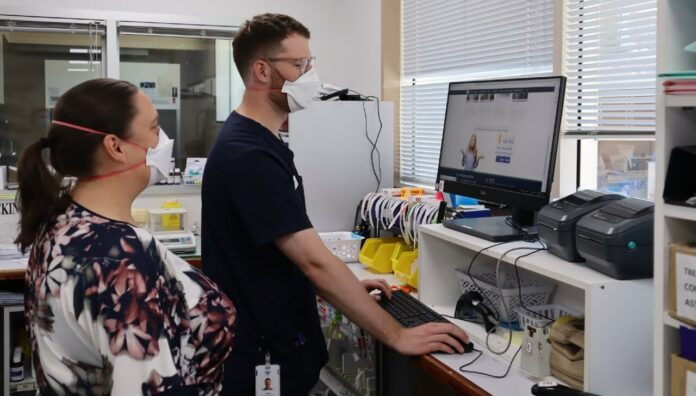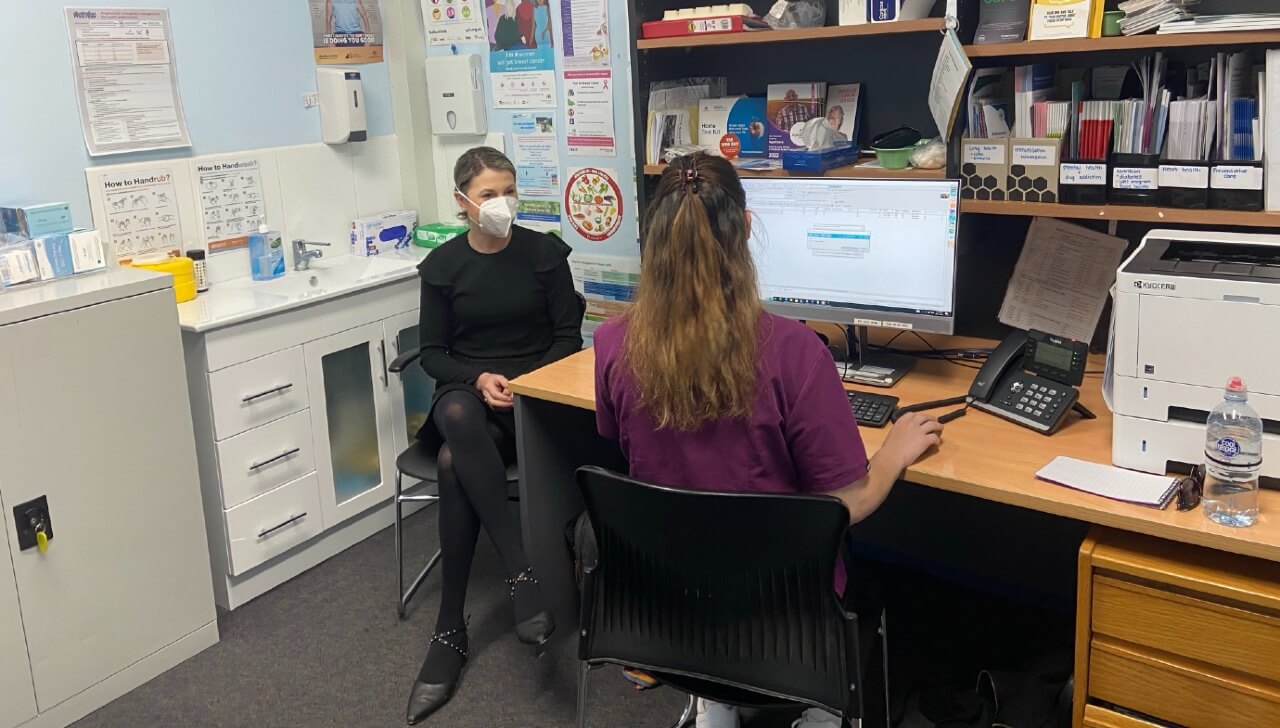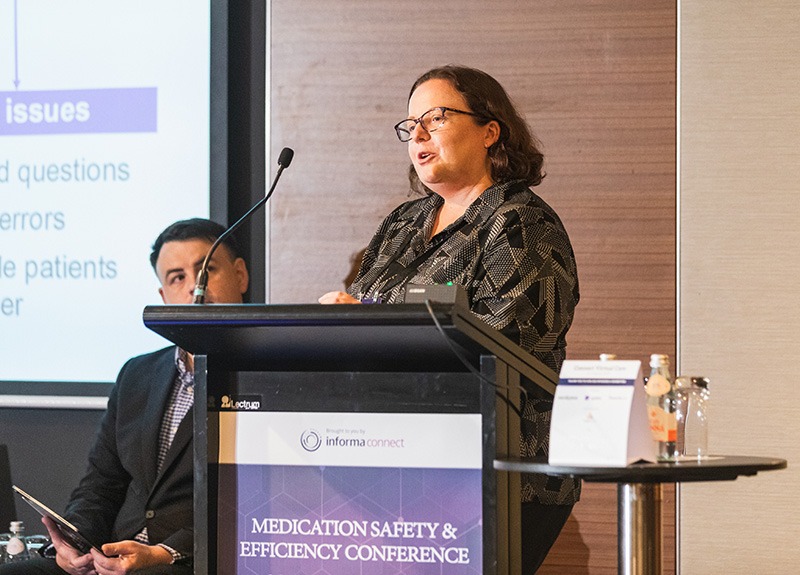
Embarking on your intern year can be both exciting and daunting. Get ahead of the curve through careful planning and building strong relationships with your new colleagues.
Australian Pharmacist sat down with PSA Pharmacist – Trainer and Assessor Penny Macklin MPS, who gave her best advice on getting the most out of your intern year.
Q: What should I consider when choosing an intern training program?
Before committing to an ITP, think about how you learn, what you’re required to do throughout the year and how flexible the program is.
Some ITPs have scheduled submission dates while others are more adaptable.
The PSA ITP, for example, provides you with all content at the beginning of the year along with a flexible ‘key dates’ calendar which helps interns manage their time.

You should also consider how the values of the organisation providing the ITP align with your own, and how the program is going to support you.
While some ITPs may offer added extras, you should consider the value of these opportunities. Do you have the capacity to take on that training in a meaningful way, or is it just going to make the year more stressful for you?
Q: How do I settle into my new working environment?
First and foremost, go easy on yourself. Transitioning from university to intern year is a big challenge – even if you have worked in a pharmacy environment before.
Take the time to familiarise yourself with your new pharmacy’s workflow, procedures and policies with the help of your preceptor.
It’s also important to understand who the go-to people are for different services, from retail managers to dispensary technicians, and so on.
But don’t assume you know what people do. Ensure you ask what each person’s role is and how that looks in the day-to-day workplace.
You should also have a healthy level of respect for the pharmacy staff. They’ve likely been there longer than you and understand how things work a little bit better.
Q: What steps can I take to understand and develop my role?
Make sure you have a well-articulated set of roles and responsibilities which will help you maintain working relationships with others throughout your intern year.
This entails talking to your new colleagues about how they see your role. A key cause of workplace friction is when assumptions are made about who is doing what, or what tasks make up a role.
If your role is not clearly defined to you, it’s your job to discuss this with your preceptor, pharmacy manager or pharmacy owner.
Articulate what you’re hoping to get out of the experience and see how that fits with your preceptor or pharmacy owner’s plan for you.
The intern year is all about on-the-job learning, so it’s also important to be open to feedback from anyone.

But remember that as the year progresses, so too will your role. While it may have a narrow scope at first, your role will develop to incorporate more aspects or services as you become more experienced.
Q: How do I balance work and study?
The intern year is extremely busy. You’re likely working full time, studying for two exams, all while completing your training program (ITP).
Time management is therefore crucial to ensure you stay on top of things. Consider mapping out your ITP submission dates, study sessions for exams, when you plan on sitting the exams, and how that aligns with the hours you’re working.
Think about whether your plan is feasible long term, because you need to maintain it for a minimum of 48 weeks.
If not, consider what needs to change. Do you need to modify your working hours, space out your study hours, or break down your ITP work into smaller chunks?
Q: How do I make the most of new opportunities?
Once you’re confident you can hit your milestones, you can start to think about taking on other opportunities, whether that’s immunisation training or mental health first aid.
You should also have a discussion with your preceptor about their plans for your progression and make sure they align with your timeframe.
But remember to be open to different opportunities, even if they don’t interest you at first glance.
That means considering if the opportunity is:
- something you can see yourself doing in the future
- an important part of pharmacy practice
- a new practice that you can learn the basics of.
Q: What can I do if I feel unsupported in my workplace?
The first thing you need to do is talk to your preceptor about your concerns. If they are not receptive, find out why.
If you still feel the issue requires escalation, consider who you can take these concerns to, such as the pharmacy manager or owner.
Strong communication throughout the intern year is vital. I often see interns feeling unsupported because they don’t have adequate communication with their preceptor.

Be open about what you’d like to do, and you might find that your preceptor already has a similar plan in the works.
It’s normal to feel overwhelmed, but the best way to address the issue is discussing why you feel this way with your preceptor.
It might help to have some ideas about how you could alleviate these feelings, such as a day off, setting aside some study time, or spending more one-on-one time in the pharmacy.
Remember that the intern year is quite flexible. If things come up that mean you need to change your workplace, keep in regular contact with your ITP who will help you manage the process.
Businesses get sold and pharmacists leave – so there’s plenty of unknowns that can crop up throughout the year. However, there’s lots of things we can do to support you, such as changing key dates, or suggesting new workplaces or preceptors.
As you commence your intern year, bear in mind that it’s a new way of working and it does take time to settle into.
Enrol or find out more about PSA’ Intern Training Program here.



 This CPD activity is supported by an unrestricted education grant by Reckitt.[/caption]
This CPD activity is supported by an unrestricted education grant by Reckitt.[/caption]





 Jess Hadley, community pharmacist and Professional Officer at PDL[/caption]
Jess Hadley, community pharmacist and Professional Officer at PDL[/caption]
 Peter Guthrey, Senior Pharmacist – Strategic Policy at PSA[/caption]
Peter Guthrey, Senior Pharmacist – Strategic Policy at PSA[/caption]


 Professor Margie Danchin[/caption]
Professor Margie Danchin[/caption]

 Dr Peter Tenni[/caption]
Dr Peter Tenni[/caption]
 How should we deprescribe gabapentinoids, according to the Maudsley Deprescribing Guidelines[/caption]
How should we deprescribe gabapentinoids, according to the Maudsley Deprescribing Guidelines[/caption]





